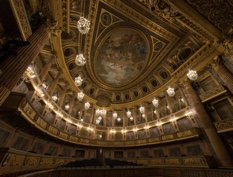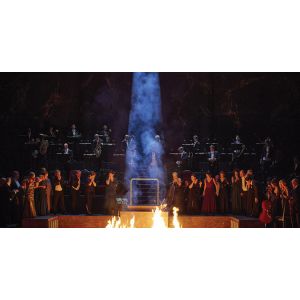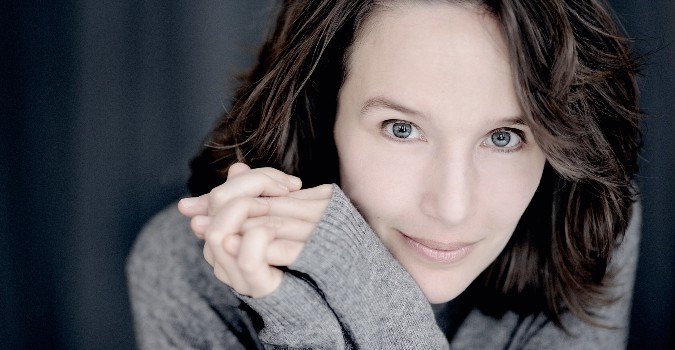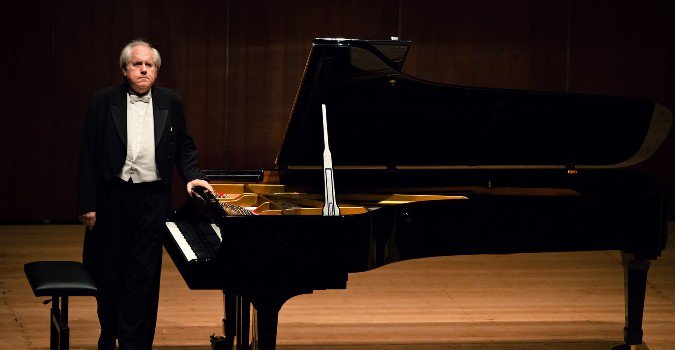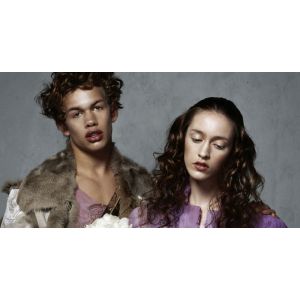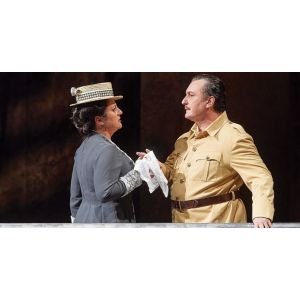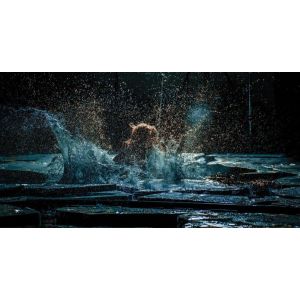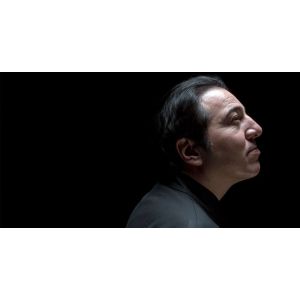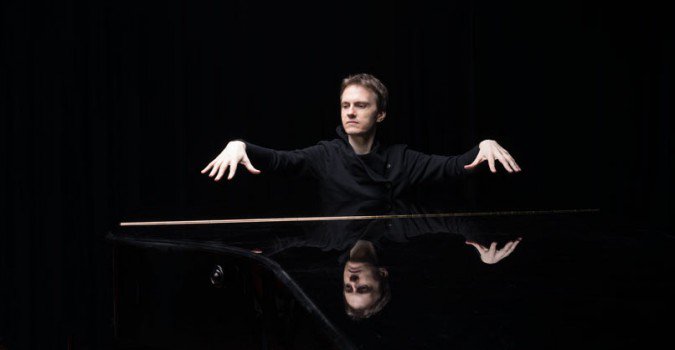
Vienna
Book your tickets for operas, concerts and ballets in Vienna ! Discover the 2023-2024 programme online !
Things to do and to see in Vienna :
Vienna in the city with 120 Museums and Fantastic opera and concert Venues presenting a performance nearly every nights: the Wiener Staatsoper - Vienna State Opera House, the Wiener Volksoper, the Musikverein, where is located the New Year's Eve Concert, the Vienna Konzerthaus or the Theater an der Wien as well as beautiful Palaces : Hofburg , Orangerie Schönbrunn and the Spanish Riding School...
Musician Emperors :
In the 17th century, opera was above all a court entertainment in Austria. The personality of the Emperor had an influence on both creations and programmes. The Viennese emperors were themselves in many cases experienced composers and musicians. The first operas were performed in the reign of Ferdinand III (Ariadna abbandonata by Bonacossi in 1641). Leopold I (1685-1705) even participated in the writing of Il Pomo d’Oro de Cesti.
The great composers in Vienna, between conformity and revolution: Vienna probably saw its first episode of influential musical history when Gluck settled in the capital in 1750. With his librettist Calzabigi, he was the great reformer of opera. Opposing the overwhelming Neapolitan tradition in opera seria, he favoured depth over brio. Another great name in the history of music: Haydn, considered by R. Strauss as the father of modern orchestration, was the great originator of Viennese classicism. Mozart, whose very name suffices to suggest perfection, lived in Vienna and died there in 1791. In the symphonic field, we must not forget that Beethoven, although a German, spent his entire career in Vienna. Haydn, Mozart and Beethoven form Vienna’s first trinity of composers.
The emergence of two musical traditions: although Viennese operetta and the waltz epitomised the music of the 19th century, it was a different movement that was to revolutionise musical history: the Neue Wiener Schule der Musik. The introduction of atonality through the twelve-note method or dodecaphony by Schoenberg, Berg and Webern (Vienna’s second trinity) was met with incomprehension from their contemporaries just as the work of Haydn, Mozart and Beethoven had been in their day. Today, a fair proportion of contemporary compositions still show the influence of dodecaphony.
The major institutions:
The first operas were performed in a theatre built in the main courtyard of the Imperial palace. Maria Theresa opened the Theater bei der Hofburg (now the Burgtheater) in 1748, where many Operas by Gluck, Mozart and Salieri were put on for the first time.
Wiener Staatsoper, Vienna State Opera
In 1857, on the Ring, the brand new boulevard, the Hofoper (royal opera house) or Oper am Ring was built, as part of Franz Joseph’s redevelopment.
Inaugurated in 1869 with a Don Giovanni in German, the auditorium experienced its true golden age under the direction of Gustav Mahler who, through a company of prestigious singers, brought a new vision to operatic performance. In 1918, the Hofoper became the State opera house (Staatsoper). Richard Strauss was to be director and produced his Die Frau ohne Schatten here for the first time. Clemens Krauss, Bruno Walter, Hans Knappertsbusch and Karl Böhm, among others, succeeded him in this post. The company hosted the top names from the world of singing and orchestral direction: Lotte Lehman, Elisabeth Schumann, Anton Dermota, Richard Tauber, Alexander Kipnis, Josef Krips…
The Anschluss forced many artists and performers to flee; the Staatsoper fell into obscurity. Bombed in 1945, it did not reopen its doors until 1955 with Fidelio, once more performed by a prestigious cast (Jurinac, Schwarzkopf, Seefried, Hotter, Patzak…).
Herbert von Karajan (director from 1956 to 1964) picked up the tradition of Mahler by also presenting productions of his own.
Today the Wiener Staatsoper (Vienna State Opera) with its orchestra, the Wiener Philharmoniker (Vienna Philharmonic), remains one of the world’s most highly regarded opera houses.
Originally devoted to the theatre of the spoken word, the Kaiserjubiläums Stadttheater became an opera theatre in 1903 under the name Volksoper (Opera of the people). Some works rejected at the Hofoper by the board of censors were put on for the first time here, such as Tosca or Salomé. It was also the venue for a great many performances which also launched a number of careers.
The Volksoper was used as a cinema during the Second World War, which avoided its being requisitioned by the army. It also lent its stage to the company of the Staatsoper until 1955.
Nowadays works from the great repertoire alternate with Viennese operettas and contemporary operas.
Built at the same time as the Hofoper at the instigation of Franz Joseph, this is one of the finest concert halls in the world. Dominated by a rectangular organ case, it enjoys exceptional acoustics. The venue has hosted the top names and its reputation is well established. It is here that the mythical New Year’s Day Concert is held each year.
This was opened on 19 October 1913 by Richard Strauss (with Festliches Präludium, a work written specially for the occasion). The conductors Leonard Bernstein, Carlos Kleiber, Pierre Boulez and Claudio Abbado, among others, have succeeded one another here. It is also the venue for contemporary music; no less than 650 premieres have been held here during the last fifty years. The concert hall’s other special feature is that it offers varied encounters between the audience and the performers.
A theatre built in 1801, at the initiative of Emanuel Schikaneder, a man of the theatre, singer and friend of Mozart for whom he wrote the libretto of Die Zauberflöte. It was here that Fidelio, Die Lustige Witwe, Die Fledermaus and most of the operettas of J. Strauss were put on for the first time. The building was restored in 1962 and today hosts events such as the Wiener Festwochen and Klangbogen.
Wiener Philharmoniker
The orchestra from the Wiener Staatsoper is considered one of the greatest orchestras in the world. It has been at all time directed by the greatest conductors.
Find the programme sorted by date and book your concert, opera and ballet tickets:
Vienna | 145 Performances
Filter by 
Neue Wiener Concert Schrammeln
Haydn / Mozart / Schubert
From 28/04/2024 to 30/04/2024
 First Steps
First Steps
Mozart Ensemble
Die lustigen Weiber von Windsor - Nicolai
From 28/04/2024 to 05/05/2024
 First Steps
First Steps
Piano Concerto No. 2 - Brahms / Symphony No. 7 - Beethoven
Sold out
From 28/04/2024 to 29/04/2024
Violin Concerto No. 1 - Bruch / Symphony No. 9 "From the New World" - Dvorák / Guillaume Tell (Overture) - Rossini
From 28/04/2024 to 29/04/2024
Waltzer, Polkas und Märsche - Strauss J. / Opera Overtures, Arias & Duets - Mozart
Premium
M&O Offer
From 28/04/2024 to 30/04/2024
Schloss Schönbrunn Ensemble
Other Cities in the same Country
-
International Agency Your ticket for an unforgettable evening around the world
-
Ticketing Agency Classical music and opera experts for over 20 years
-
+48.000 spectacles Operas, Concerts and ballets in prestigious Venues
-
Advice Music specialists can help you make the best choice, call us at +33 1 53 59 39 29






